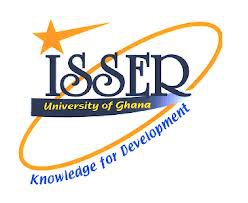 ISSER logo
ISSER logo
Professor Augustine Fosu of the Institute of Statistical Social and Economic Research (ISSER) has cautioned government to move away from spending too much on “freebies” in order to reduce the pressure on domestic expenditure.
The economist argued that the country has been spending more than it generates, a situation he that said has a dire impact on the country’s public debt stock.
Speaking at a seminar on the topic ‘Has Ghana been an economic success case?’ at the University of Ghana Business School in Accra, he said: “It’s critical that government doesn’t spend more than it can generate. Also, government should move away from trying to do too many things and offering too many things for free. I think Ghanaians should come to the realisation that they have to pay for public utilities, services, projects among others”.
Data from the central bank indicate that as of June this year, the country's total public debt stock stood at GH¢94.5billion, representing 70.9 percent of Gross Domestic Product (GDP).
According to Prof. Fosu, the rising public debt has seen government borrow heavily from the domestic market -- much to the disadvantage of private business.
“If you are borrowing too much from domestic markets, it means you are crowding out the private sector. That is the case because interest rates are likely to be very high. If you look at Treasury bills now the rate is about 25 percent, and therefore banks have to charge more on the loans they give to the private sector,” he said.
Despite concerns raised regarding the country’s debt stock, Finance Minister Seth Terkper addressing journalists in Accra last month maintained that underlying most of the public debt are commercial projects that have the capacity to refinance themselves.
"This is part of the debt management strategy, so that capital projects such as the gas facility, roads and hospitals will pay for themselves to relieve the taxpayer of the burden of paying for such projects,” he said.
Professor Fosu also said that it is incumbent on government to also check its executive instruments, instituting reforms, cutting spending to reduce expenditure by adopting what he described as relatively optimum expenditure.
He lauded government for the economic reforms as far as development governance is concerned, which he says has seen friendly market policies.
On how to reduce corruption at the highest level, Professor Fosu explained that, for instance, the Ministry of Education and the Ghana Education Service “could reintroduce ethics and values at basic level”, which he reckoned can reduce the incidence of corruption in the country.